Foundation & Below-Grade Waterproofing
Serving Los Angeles, Pacific Palisades, and Malibu
Your #1 Choice
Full Support Service
Have Questions? We Are Happy To Help You Anytime
We install complete below-grade waterproofing systems designed to protect structural foundations, retaining walls, and subterranean spaces from hydrostatic pressure and groundwater intrusion. Our work begins once concrete or shotcrete walls are formed — integrating membranes, drainage, and detailing to create a continuous, long-term waterproofing assembly.
Why Below-Grade Waterproofing Is Critical
Concrete alone is not a waterproof barrier. In hillside, coastal, and below-grade construction, groundwater and hydrostatic pressure can penetrate through cold joints, tie-backs, and wall interfaces. Proper waterproofing must be installed during the construction phase to prevent moisture migration, interior damage, and structural deterioration over time.
We install membrane and drainage systems prior to backfilling, ensuring walls remain protected for the life of the structure.
Waterproofing Systems We Install
Tremco TREMproof® 250GC
A fluid-applied, cold-applied waterproofing membrane that forms a seamless barrier over concrete and shotcrete. Ideal for complex wall conditions, transitions, and detailing around penetrations.
Visible cracks in walls or floors
Doors and windows sticking
Uneven or sloping floors
Gaps around window frames or doors
CETCO Voltex® Bentonite Membrane
A geosynthetic clay liner that self-seals when hydrated and confined. Commonly used on retaining walls and foundation walls before backfill, especially in high-moisture soil conditions.
Drainage & Protection Components
Drainage boards to relieve water pressure
Protection boards to shield membranes during backfill
Fabric-wrapped French drains and gravel systems at footing level
Optional sump tie-in integration where gravity drainage is not available
Application Areas
We waterproof a wide range of structural wall assemblies, including:
Foundation walls (formed or poured concrete)
Retaining walls behind grade transitions and hillside cuts
Shotcrete/lagging walls installed during shoring or deep excavation
Basement and podium walls in subterranean builds
Footing and underslab transitions requiring vertical-to-horizontal continuity
Surface Preparation & Installation Sequencing
Proper waterproofing depends on substrate readiness. We coordinate installation to ensure:
Surfaces are clean, sound, and free of laitance or debris
Voids, honeycombs, and surface defects are addressed per system requirements
Membranes are applied under appropriate moisture and temperature conditions
Assemblies are protected prior to backfill or exterior wall finishes
Detailing & Penetration Sealing
Critical detailing is performed to maintain an unbroken waterproofing envelope:
Footing and wall terminations
Cold joints and construction joints
Tie-back and soil nail penetrations
Pipe sleeves, conduits, and embedded hardware
Termination angles and edge conditions at grade
Hydrostatic Pressure Management
Waterproofing systems are paired with drainage design to reduce long-term water pressure against the structure:
Vertical drainage composites to guide water downward
French drains and gravel trenches to move water away from the wall
Filter fabrics to protect long-term flow path integrity
Clean-out access where required for serviceability
System Compliance & Documentation
Installations follow manufacturer specifications and Division 07 waterproofing requirements. Submittals, product data, and assembly detailing are provided where required. Site conditions are verified prior to application, and membrane integrity is maintained through subsequent trades and backfill operations.
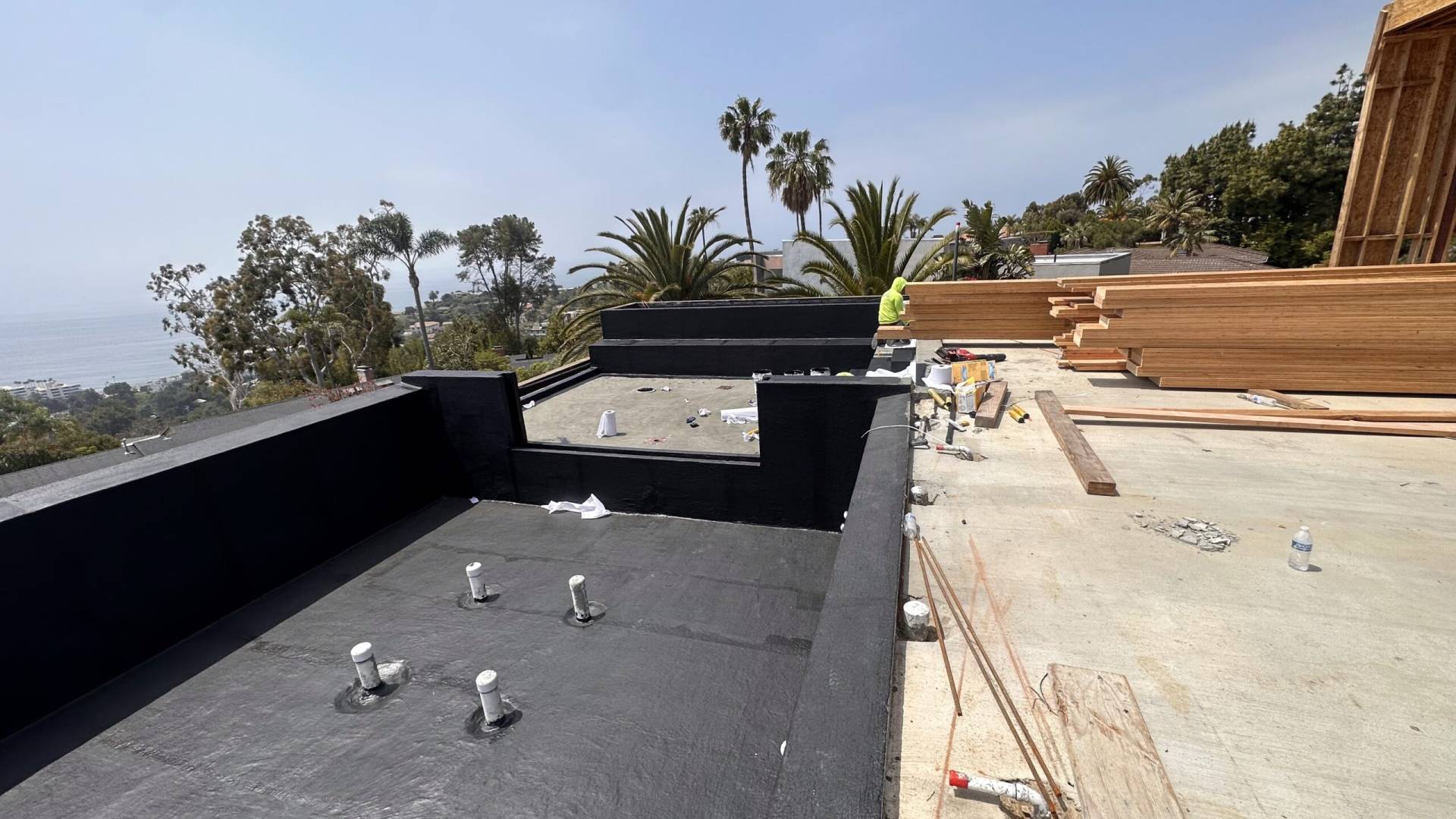
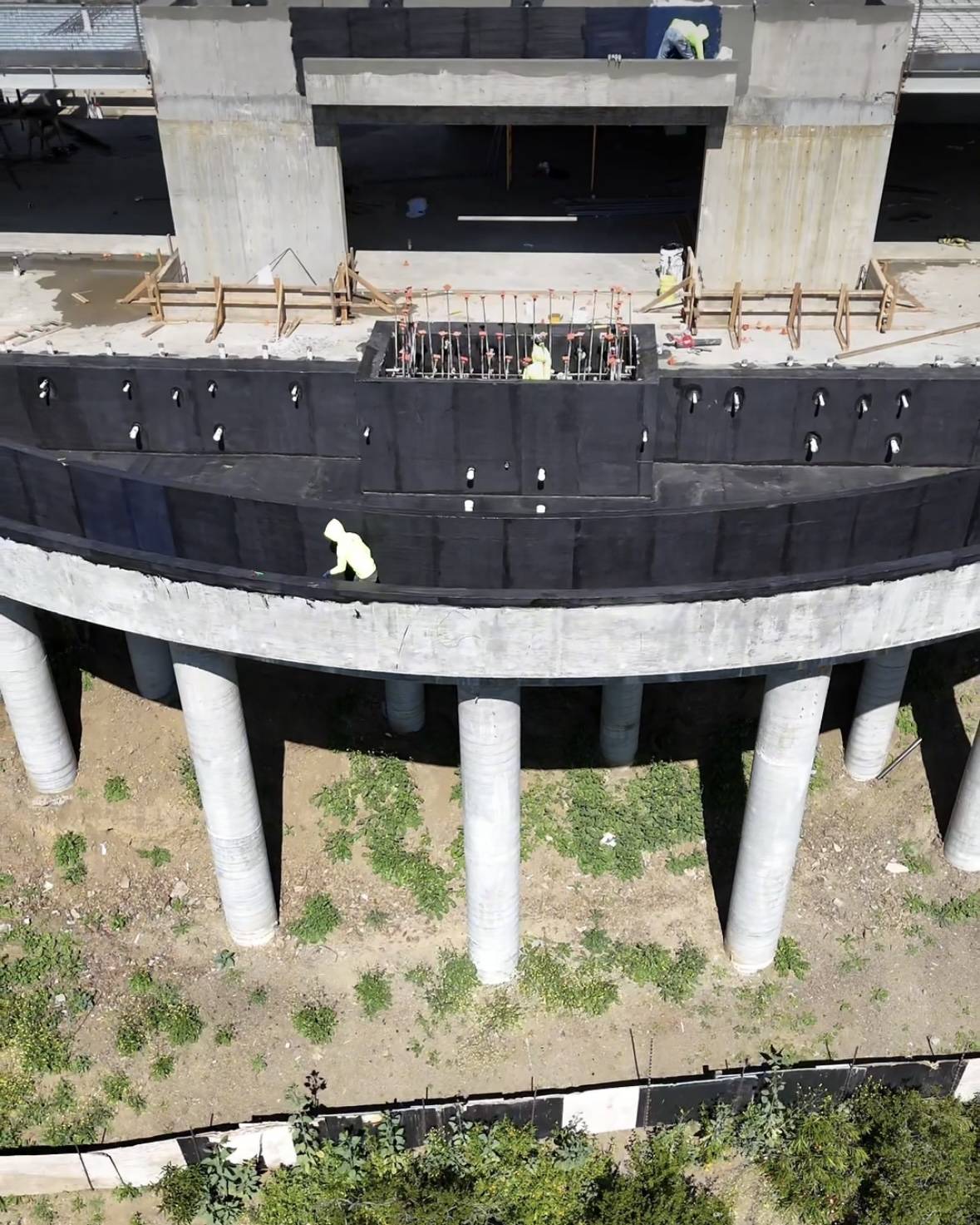
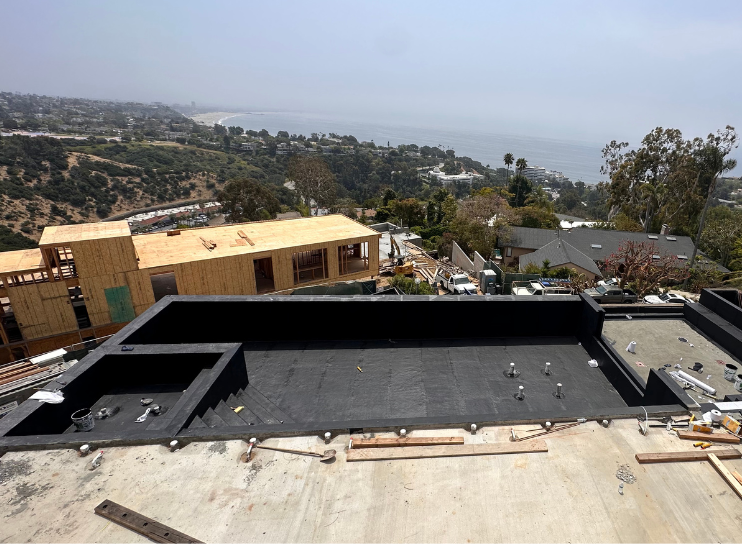

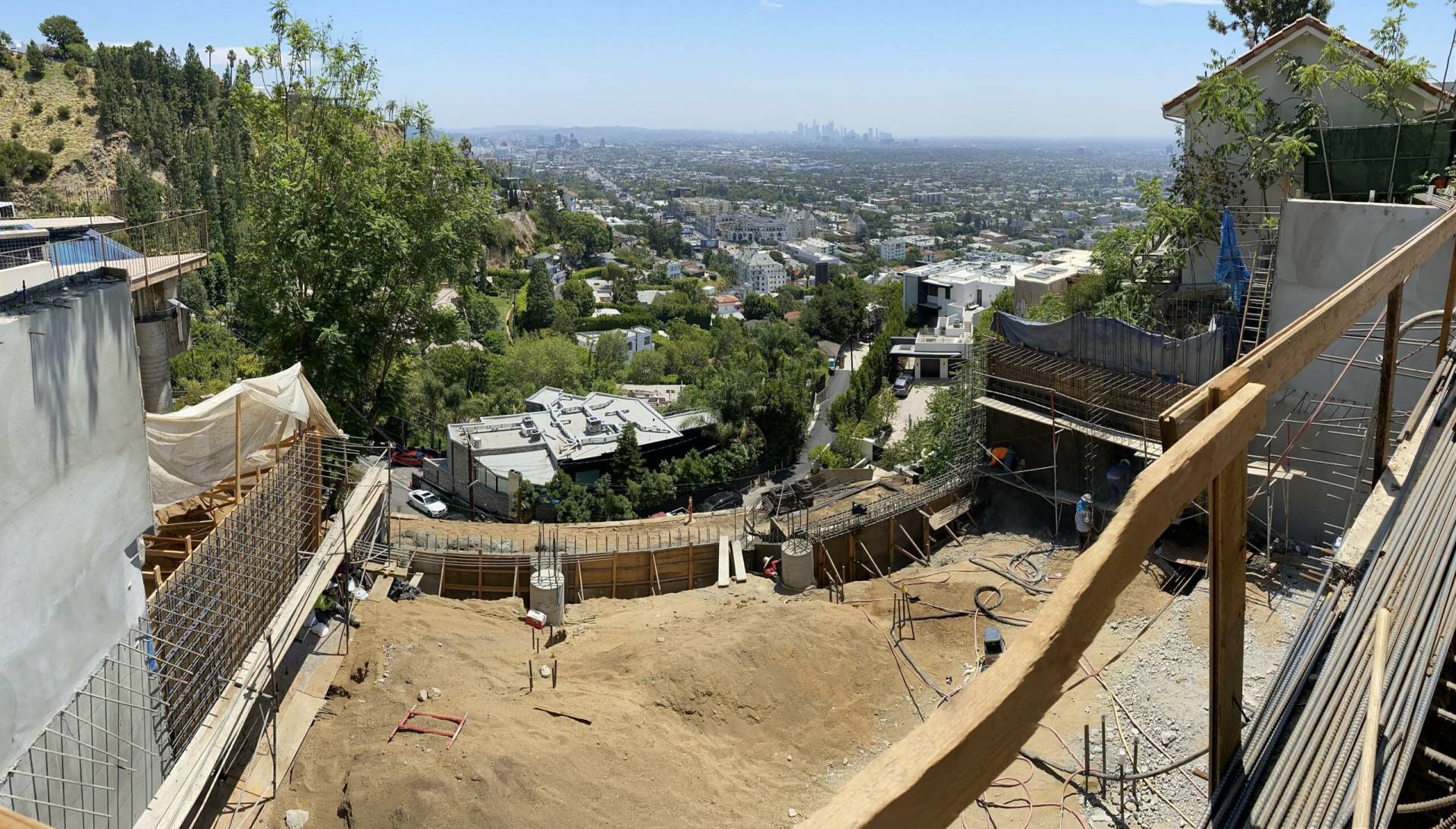
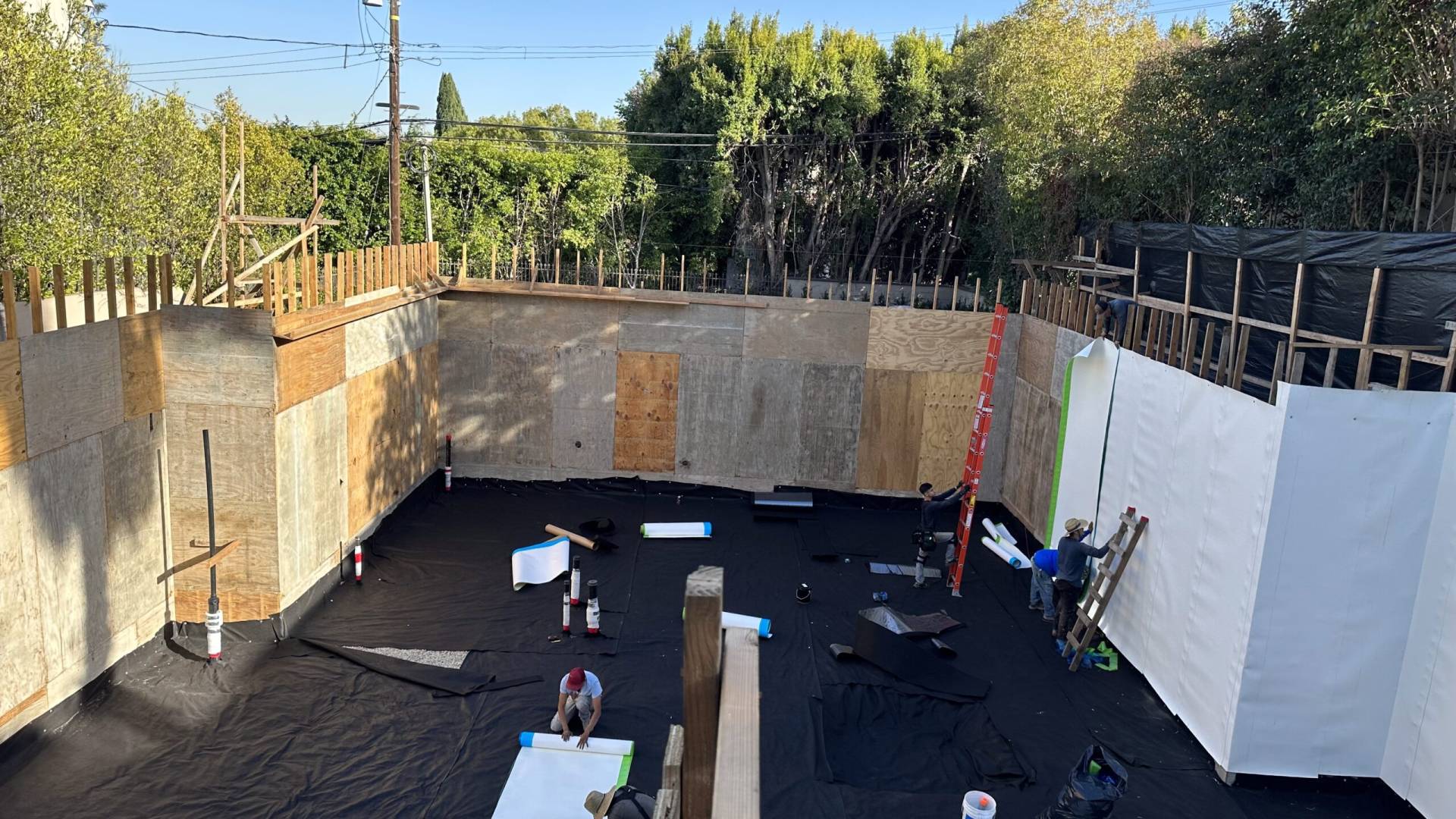
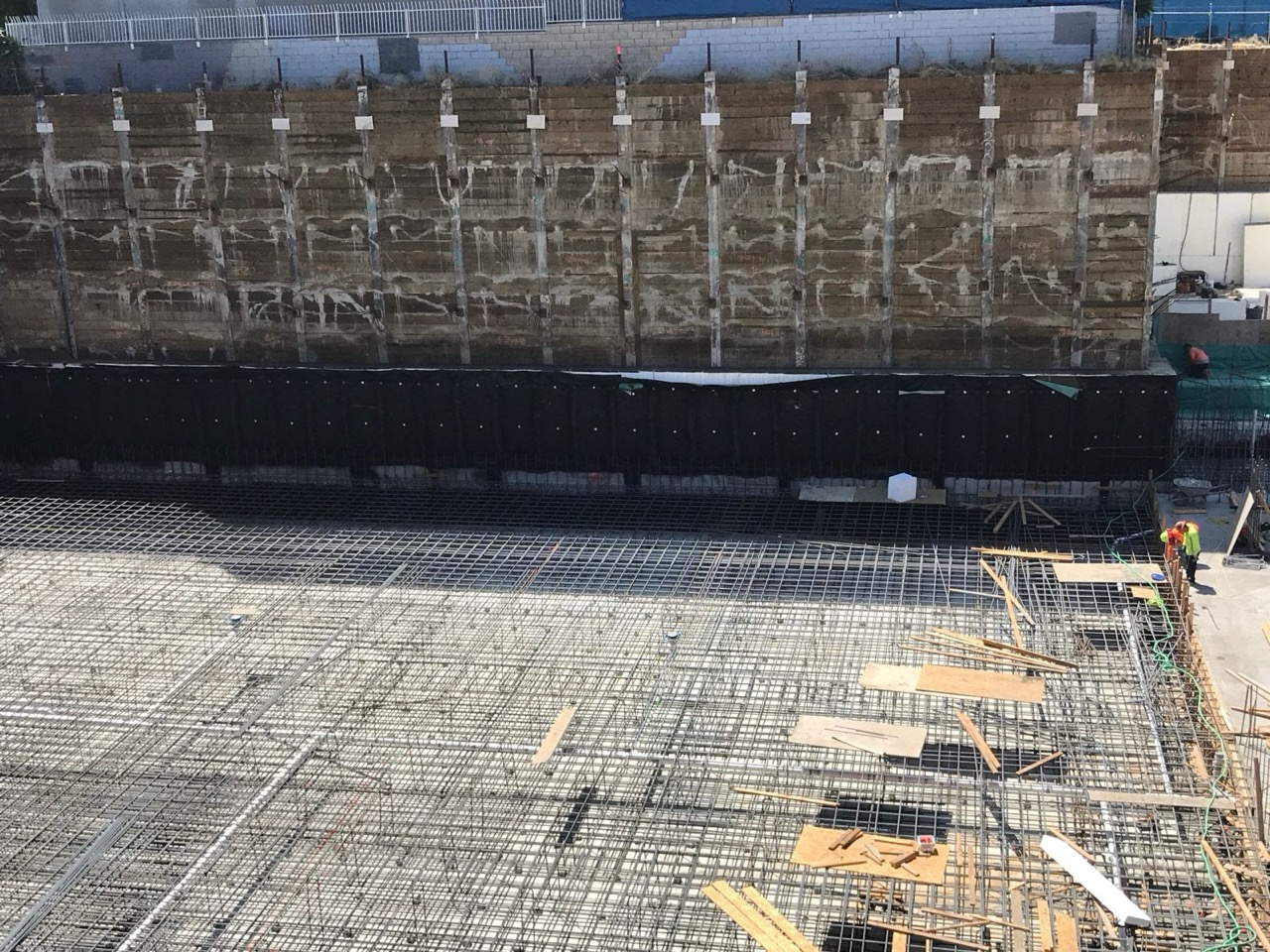







Service Areas
We provide below-grade waterproofing services throughout:
Pacific Palisades • Malibu • Los Angeles • Beverly Hills • Santa Monica • Brentwood & Surrounding Areas
Request Waterproofing Scope Review
Submit plans or wall sections for specification alignment, membrane selection, and drainage detailing. We assist with assembly selection based on soil conditions, water table level, and structural design requirements.
→ Send drawings or details to begin waterproofing coordination or Call us at (818) 540-5235.
